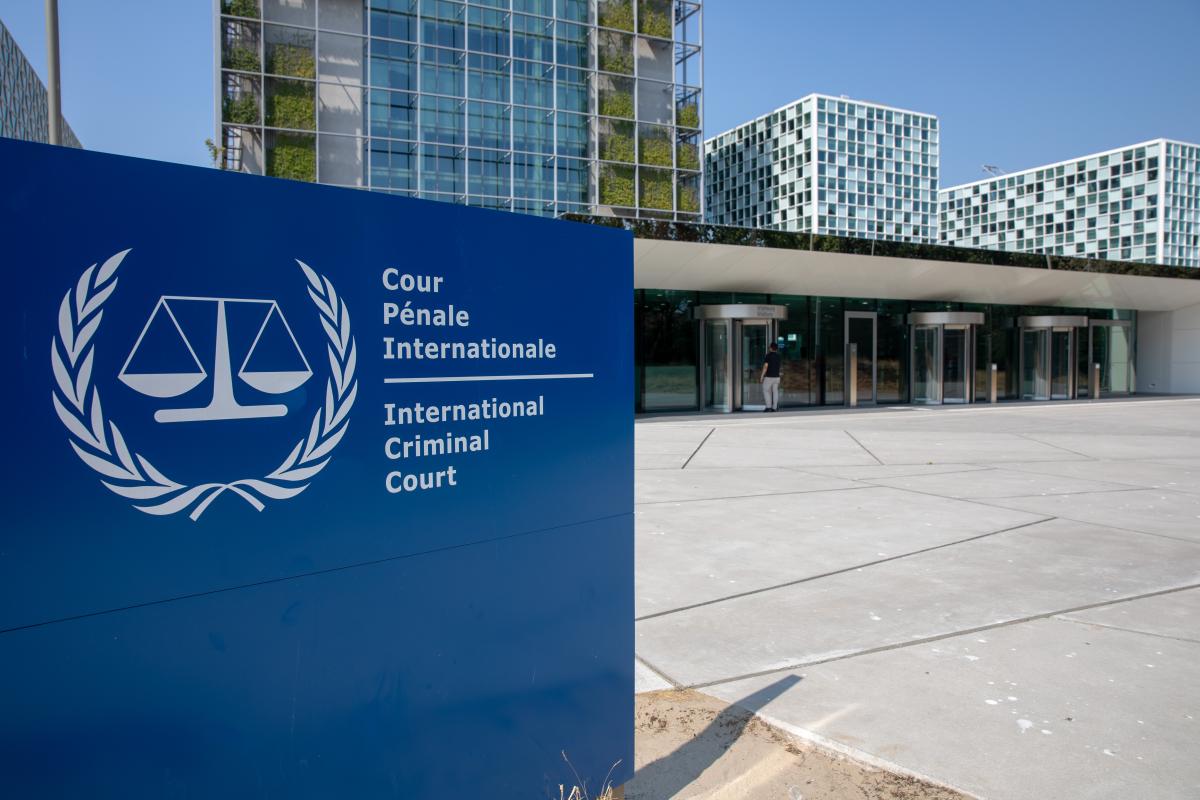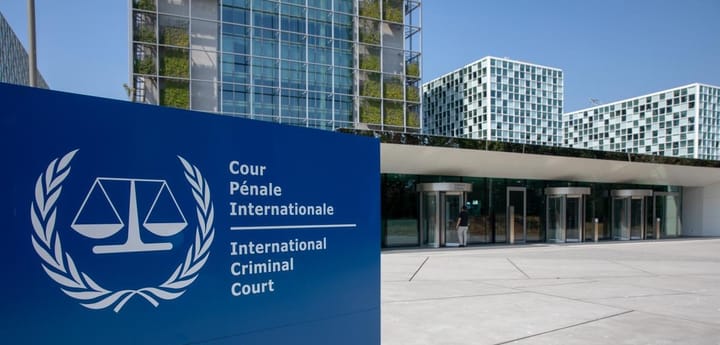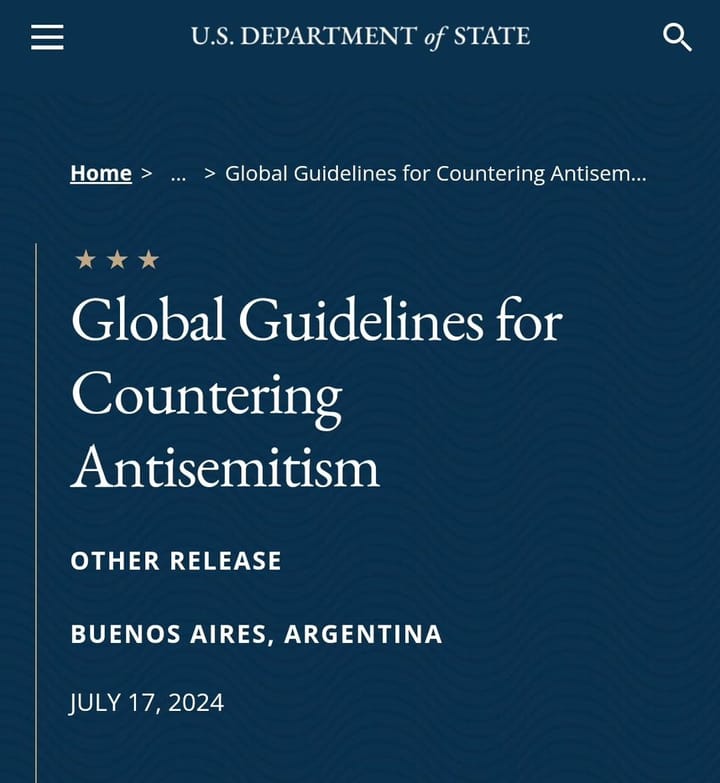"If you Can't Prosecute Them, Join Them to Prosecute Israel": The ICC's Selective Justice & Failure to Deter Mass Suffering in the Middle East.

Hezbollah was involved in many wars, including the Syrian Civil War (2011 to 2022) and the Iraqi Civil War (2013-2017). Alongside the war in Yemen, over 1.1 million were killed in these Middle Eastern wars between 2011 and 2022. The ICC has not been able to indict a single person for all these wars and killings. Groups like Hezbollah, which were involved in the bloodshed, have not been held to any form of account by the International Criminal Court. Yet, the Court found a way to quickly indict the Israeli prime minister and defense minister.
First, the ICC failed to deter wars and human suffering in the Middle East. They could not hold anyone accountable. And now, by indicting Israeli leaders alongside widely recognized Hamas terrorists, they have shown themselves to be a weaponizable tool in the hands of various blocs of nations. This dents the ICC’s image and raises serious doubts about its validity and reliability as a court system.
Many of us have grown accustomed to the fact that a court's reputation is beyond reproach. That is because, for centuries, states have nurtured and developed impeccable ethical standards that guarantee the credibility of the judicial arm of government.
Unlike most state courts, the International Criminal Court (ICC) is not part of a balance-of-power framework. In other words, courts in most states are extensions of the judicial arm of government, which counterbalances the executive and legislative arms of government.
The Rome Statutes set up the ICC as a permanent court to try persons responsible for acts of mass violence and serious crimes against humanity[1]. The ICC was meant to function as a “permanent court” that will investigate, recognize, and try persons who bear the greatest responsibility for a major humanitarian crisis like war and acts of mass suffering[2].
Credibility is the Only Source of Authority the ICC Has
As a court not mutually recognized within a governmental system complemented by a legislative and executive arm, the International Criminal Court is only as good as its ability to meet its objectives.
If the ICC fails to meet its goals of recognizing and prosecuting perpetrators of mass crimes, the Court has no reason to exist. On the other hand, a court like a state Supreme Court is known to be an institution steeped in the judicial structures of the rule of law – therefore, it is entrenched in a state's system in fact and in law.
The ICC is a special-function court created by a multilateral agreement of several states that signed the Rome Statute of 1998. Thus, the judges at the Court are bound by the functions defined by the Statute. If they fail to meet those functions, the ICC has little to no basis to exist in fact and in law.
In practice, the fundamental essence of creating the International Criminal Court is to hold perpetrators to account. This is aimed at (2) deterring acts leading to human suffering and encouraging (2) power holders to act responsibly.
Where the ICC does not deter perpetrators of mass violence, the Court has failed in principle and in practice. When perpetrators commit mass crimes and are never indicted by the ICC, the Court has also failed in colossal proportions. This constitutes the golden standard for measuring a court like the ICC.
The ICC’s Pervasive Failures to Prosecute Muslim Leaders in Syria, Yemen, and Iraq – No Accountability for Iran (2011 to 2022)
According to conservative estimates, no less than 1.1 million people were killed in the three conflicts that ravaged the Middle East in Iraq, Syria, and Yemen between 2011 and 2022. In Syria alone, over 600,000 people were killed. This is more than 12 times the death toll in Gaza to date (according to Hamas' figures of 43,000, which is widely disputed).
However, the ICC never recognized the Syrian massacres.
In Yemen, many people were killed, and others starved to death by deliberate human actions during the civil war from 2015 to 2021. This was not a natural act. It was an act inflicted on the people. Yet, the ICC has not found it expedient to recognize this as a mass crime and hold anyone accountable. It just happened!
Iraq’s civil war happened quietly between 2013 and 2017. Most people around the world saw or heard nothing. However, it saw the killing of some 150,000 people. No one has been held accountable.
Hezbollah, a non-state Shiite militia based in Lebanon, was pervasive in all the conflicts. They saw action in Syria and Iraq, where they killed a lot of people in many operational theaters of the wars.
Iran's regime supports Hezbollah with a lot of cash and weapons. Many of the groups that contributed to no less than half of the killings in the Middle East between 2011 and 2022 gained funding from Iran.
It has been over two years since all these wars in Syria, Yemen, and Iraq ended. The ICC has yet to present a single warrant for a single individual for any murder and killing in the three wars.
Clearly, the ICC has no ability to:
1. Deter violence or
2. Hold perpetrators accountable in the Middle East
This shows that for the Middle East, the ICC was incapable of applying its mandate either out of impossibility or due to a purposeful disregard for the suffering of the people in Syria, Lebanon, and Yemen between 2011 and 2022.
Singling Out Israel for Prosecution by the ICC
It comes as a surprise that the ICC could quickly and efficiently find a way to issue a warrant for the arrest of the Israeli prime minister and his defense minister.
There were no excuses or impossibilities. The ICC employees were not able to process a warrant for their arrests.
Israel is the only state that has a majority non-Muslim population in the Middle East.
When Muslim leaders killed innocent civilians as part of their wars between 2011 and 2022, the ICC could not find a grounds to hold them accountable. They conveniently absolved them of their accountability.
The war in Gaza parallels the war in Sudan. They intensified around the same time. And both wars continue. Khartoum state alone had a death toll of over 61,000 this year. This is higher than the death toll in Gaza.
However, the ICC has not presented a warrant for anyone in Sudan’s wars. We all know that the war involves two disgruntled generals fighting each other. The ICC has not been able to issue a single warrant for anyone in the war in Sudan.
It is clear that some elements have been able to weaponize and steer the ICC to target the one and only non-Muslim state in the Middle East. That is discriminatory and highly indicative of selective justice. This raises questions about the independence of the International Criminal Court in the family of nations.
Conclusion: Selective Justice, Loss of Credibility, and Unreliability of the ICC
The law has an objective element. Justice must be done, and justice must be seen to be done. Unfortunately, neither of the two has been met by the ICC.
The wars in Syria, Yemen, and Iraq are all objective cases that involved human suffering. Who was responsible for any massacre or event is clear. If the ICC wanted to indict individual military commanders and heads of government, they would have done that two years after these three wars that claimed over a million lives ended.
By jumping at Israel and rushing to present a warrant against the leader of the only non-Muslim state, it is clear that the ICC is liable for some elements of (1) selective justice and (2) discrimination against a minority state. This is a major dent in the reputation of the ICC as a credible and balanced legal body in the family of nations.
Furthermore, the ICC failed to deter mass violence in the Middle East when Muslim militants and states killed innocent civilians. To date, they have not been able to recognize and hold these perpetrators to account. This shows that the ICC failed for over a decade on matters that caused serious and extreme suffering. This places the Court's essence and legitimacy in doubt. It paints the Court as unreliable, selective in its actions, and incapable of deterring mass suffering or holding perpetrators to account. The warrant the ICC issued for the Israeli prime minister has shown these inherent weaknesses beyond reasonable doubt. The next question is, what will the ICC do to restore its credibility after this self-indicting act of issuing a warrant for the leader of a regional minority state, defending itself from a terrorist attack in ways that any other state would have acted?
[1] Darryl Robinson. "Defining "Crimes Against Humanity" at the Rome Conference" American Journal of International Law 93 (1) 1999 pp43-57
[2] Charles Majinge. "The International Criminal Court and the question of alternative justice system in Africa: a case of be careful of what you wish for?" Law & Politics in Asia, Africa & Latin America 42 (2) 2009 pp151-172




